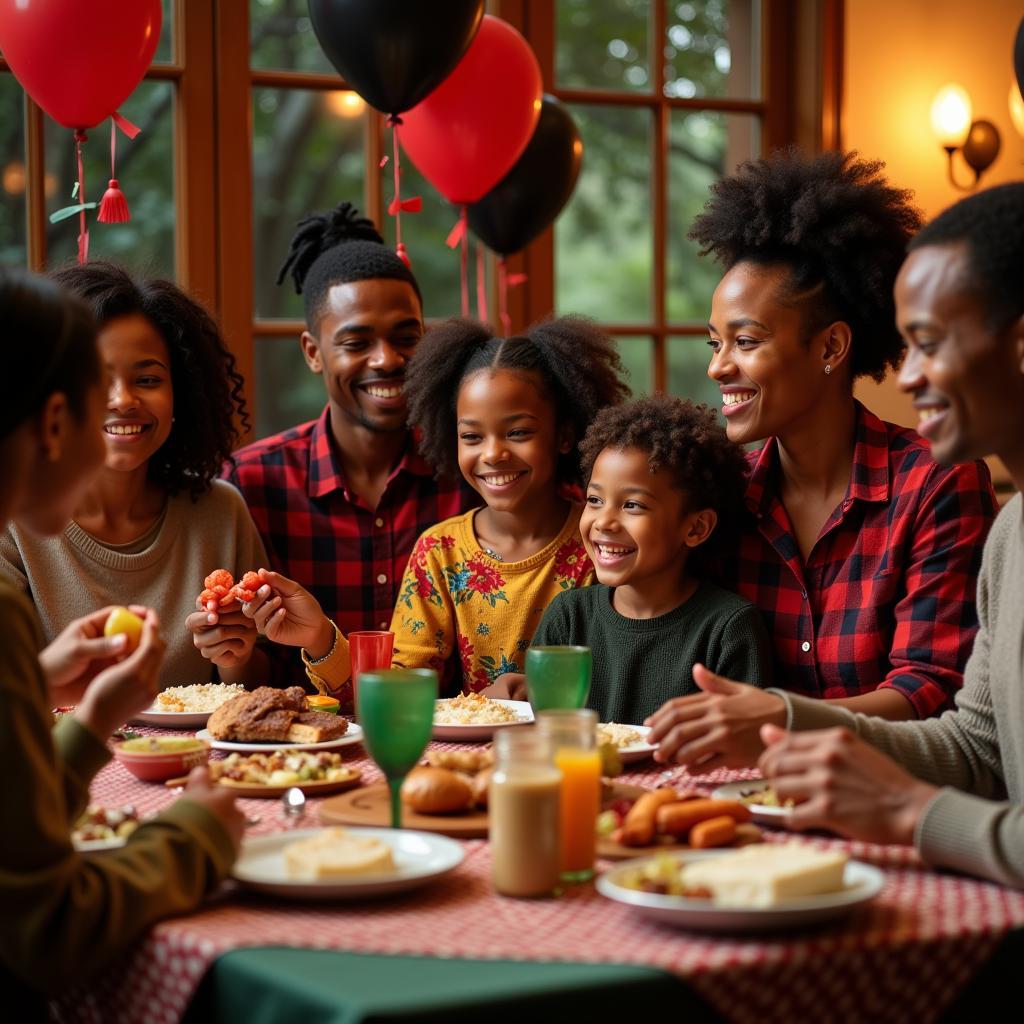Unveiling the Rich Tapestry of African Beauty Contests
African Beauty Contests are more than just dazzling displays of physical attractiveness; they are powerful platforms showcasing the diverse cultures, traditions, and aspirations of women across the continent. These pageants often serve as a springboard for social change, empowering women to become ambassadors for their communities and advocates for important causes. They highlight not only external beauty but also inner strength, intelligence, and commitment to positive impact. Right after independence, most beauty pageants across the African continent became a symbol of nationhood and pride.
More Than Just a Crown: The Significance of African Beauty Contests
African beauty contests are deeply rooted in cultural heritage and often reflect the unique values and aesthetics of different regions. Some competitions emphasize traditional attire, hairstyles, and body adornments, celebrating the rich tapestry of African artistry and craftsmanship. Others focus on the contestants’ intellect, talent, and ability to articulate their vision for a better future. The African Cup of Nations in Cameroon showcased the continent’s beauty in sporting activities. Regardless of the specific focus, these contests provide a stage for women to express their individuality, challenge stereotypes, and redefine beauty standards.
These platforms offer opportunities for young women to gain valuable skills, build confidence, and pursue higher education. Many winners and participants go on to become successful entrepreneurs, community leaders, and role models, inspiring future generations to strive for excellence. They use their newfound visibility to advocate for issues such as education, healthcare, and gender equality, making a tangible difference in their communities. By showcasing their talents and intelligence, they shatter preconceived notions and demonstrate the immense potential of African women.
A Celebration of Diversity: Exploring Regional Variations in African Beauty Contests
Across the vast and diverse continent of Africa, beauty contests vary significantly, reflecting the unique cultural nuances of each region. In North Africa, contests often incorporate elements of Islamic tradition, with modest attire and a focus on inner beauty and character. West African pageants, on the other hand, are known for their vibrant displays of color, elaborate hairstyles, and intricate body art, showcasing the region’s rich artistic heritage. African American beauty pageants also hold a rich cultural significance. East African contests often highlight traditional dances, music, and storytelling, emphasizing the importance of cultural preservation. Southern African pageants frequently incorporate contemporary fashion and global trends, reflecting the region’s cosmopolitan nature. These regional variations demonstrate the dynamic and evolving landscape of African beauty contests.
What are some common misconceptions about African beauty contests? A common misconception is that they prioritize Western beauty standards. While some contests may incorporate elements of global trends, many emphasize and celebrate traditional African aesthetics and values.
Empowering Women, Inspiring Change: The Impact of African Beauty Contests
African beauty contests are more than just superficial competitions; they are catalysts for positive change. By providing a platform for women to voice their opinions, share their stories, and advocate for important causes, these contests empower them to become agents of change in their communities. Winners and participants often use their newfound influence to raise awareness about social issues, promote education, and champion gender equality. They become role models for young girls, inspiring them to pursue their dreams and challenge societal norms.
How do African beauty contests empower women? They provide platforms for women to gain confidence, develop leadership skills, and advocate for important causes, ultimately empowering them to become agents of change.
Beyond the Runway: The Future of African Beauty Contests
The future of African beauty contests lies in embracing both tradition and innovation. While preserving the rich cultural heritage that underpins these events, it is essential to adapt to evolving societal values and global trends. This includes promoting inclusivity, challenging outdated beauty standards, and emphasizing the importance of inner beauty, intelligence, and social responsibility. By continuing to empower women, celebrate diversity, and amplify their voices, African beauty contests can play a vital role in shaping a brighter future for the continent. The legacy of groups like African Black Mambazo speaks volumes of the richness of African music and culture. What about wildlife? Articles like African animals fighting are eye-opening for some. And let’s not forget the iconic African Cup of Nations ball.
In conclusion, African beauty contests are a powerful celebration of diversity, resilience, and the evolving role of women in African society. They are more than just competitions; they are platforms for empowerment, cultural preservation, and social change. By embracing both tradition and innovation, these contests will continue to inspire and uplift future generations.
FAQ
- What is the purpose of African beauty contests? To celebrate beauty, culture, and empower women.
- How do these contests differ across regions? They reflect unique cultural nuances through attire, traditions, and focus.
- What is the impact of these contests on women? They empower women to become leaders and advocates for change.
- How do these contests contribute to society? They promote cultural awareness, diversity, and social progress.
- What is the future of African beauty contests? It involves embracing innovation while preserving cultural heritage.
- Are African beauty contests only about physical appearance? No, they emphasize inner beauty, intelligence, and social impact.
- How can I learn more about specific African beauty contests? Research online or contact cultural organizations for information.
Need support? Contact us 24/7: Phone: +255768904061, Email: kaka.mag@gmail.com, Address: Mbarali DC Mawindi, Kangaga, Tanzania.


